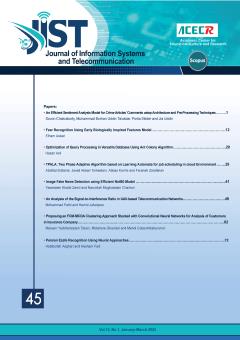To select an enterprise resource planning (ERP) system is time consuming due to the resource constraints, the software complexity, and the different of alternatives. A comprehensively systematic selection policy for ERP system is very important to the success of ERP pro
More
To select an enterprise resource planning (ERP) system is time consuming due to the resource constraints, the software complexity, and the different of alternatives. A comprehensively systematic selection policy for ERP system is very important to the success of ERP project. In this paper, we propose a fuzzy analytic hierarchy process (FAHP) method to evaluate the alternatives of ERP system. The selection criteria of ERP system are numerous and fuzzy, so how to select an adequate ERP system is crucial in the early phase of an ERP project. The framework decomposes ERP system selection into four main factors. The goal of this paper is to select the best alternative that meets the requirements with respect to product factors, system factors, management factors and vendor factors. The sub-attributes (sub-factors) related to ERP selection have been classified into thirteen main categories of Functionality, Reliability , Usability , Efficiency , Maintainability , Portability , Cost, Implementation time, User friendliness , Flexibility , Vendor Reputation , Consultancy Services, and R&D Capability and arranged in a hierarchy structure. These criteria and factors are weighted and prioritized and finally a framework is provided for ERP selection with the fuzzy AHP method. Also, a real case study from Iran (PARDIS-LO Company) is also presented to demonstrate efficiency of this method in practice.
Manuscript profile


